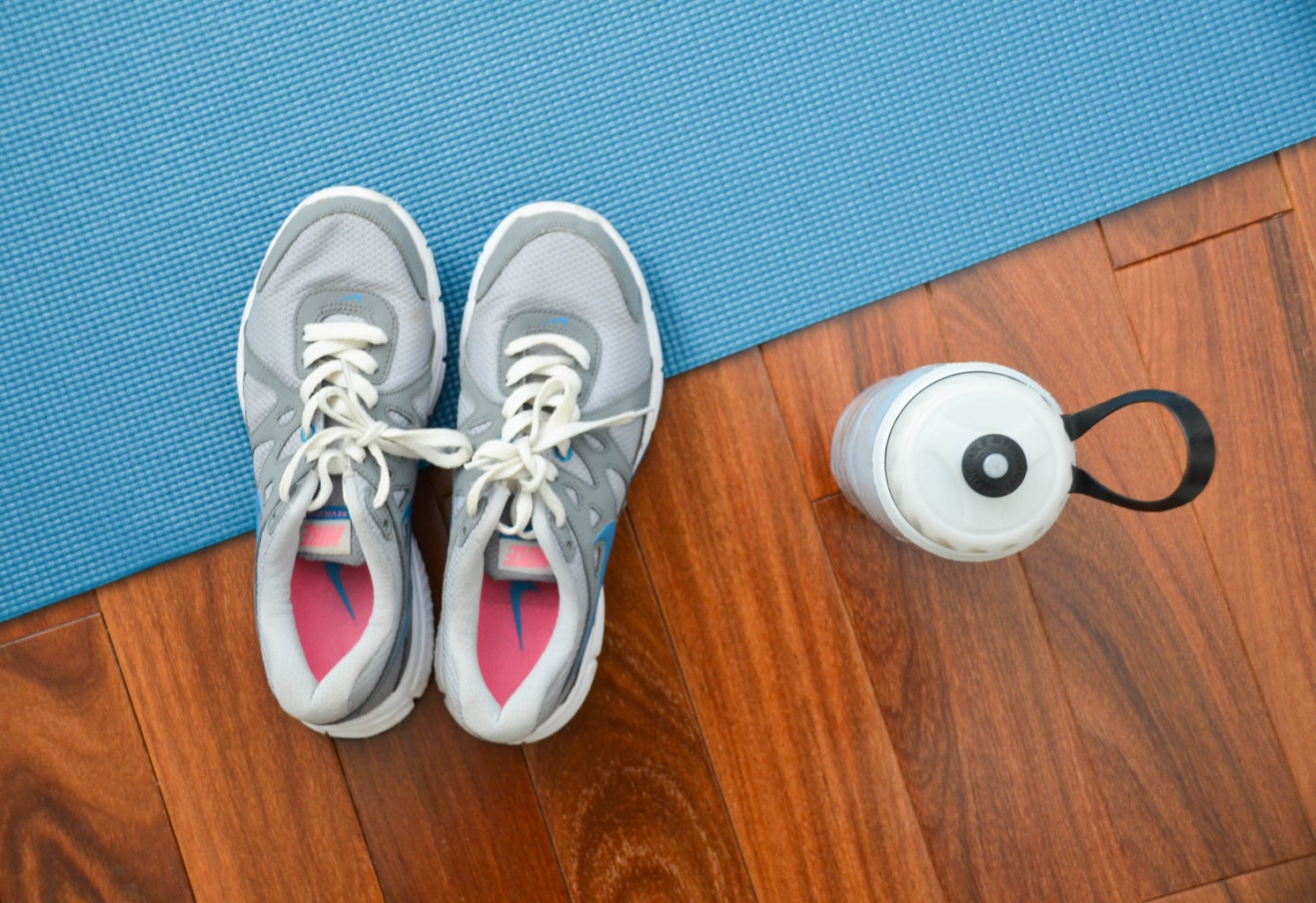How picking up running helped me — and can help you — process a breakup.
I take a deep breath, and the crisp fall air fills my lungs.
“Are you ready?”
I nod to my running buddy, pressing start on my fitness tracking app. I pop in my Airpods, attempting to drown out the noise of red and orange leaves crunching under my tennis shoes while we pick up speed. We settle into a steady pace, and I allow my mind to wander as my feet rhythmically thud down the forested trail.
I started running at the end of August. I had tried it before — cross country in middle school, the occasional neighborhood jaunt in highschool, hopping on the treadmills at the Rec when I first arrived at Mizzou in my #GymGirl era — but I felt like I could never truly get into it.
That is, until I got out of a long-term relationship.
Maybe I wanted to perfect my revenge-bod. Maybe I saw a certain beauty in working on myself, bettering my mind and body and creating long-lasting healthy habits. Maybe I quite literally just had nothing better to do with my newly freed-up schedule. No matter the reason, when a friend of mine expressed a similar interest in running, I figured simply:
“Why not?”
We started small; we would run a mile in the morning twice a week. The hot, sticky Missouri summer sun did NOT serve us well. We were miserable.
But then, the seasons began shifting. We felt a September breeze, and we ran a mile and a half. We started running in the evenings, alternating running intervals of five, six, seven, and eight minutes with short, succinct walking breaks. September became October, and October became November.
I may have never liked running before, but now, it almost feels like a part of me. It has been more than three months, and as it turns out, running really does get easier.
The first line of a Mend article by Lindsay Beach often comes to mind when I think of running: “For most healthy adults, physically moving on is much easier in comparison to mentally moving on.” I may not have gotten into running purely with the intention of coping with my breakup, but it became a saving grace for me and so many others emotionally.
According to an article by Bravo, 39% of women embrace an active lifestyle after a breakup, and 87% of women doing so work out for the emotional benefits.
But why is this? Why do we willingly put our bodies through this physical pain when we are already in so much emotional pain? What good is picking up running after a breakup?
Moving on … literally
A blog post by fitness studio Urban Vybe reads: “Exercise is a great way to release all the tension, stress, nervous energy, anger, and frustration that builds up when you are suffering emotionally. During exercise your brain releases endorphins. Endorphins are natural ‘feel good’ chemicals that produce feelings of pleasure, happiness, and euphoria.”

Natalie Msechu, Kansas City-based therapist, seconds this thought. Much like any other form of exercise, Msechu believes that running provides numerous health benefits, both mentally and physically. Msechu emphasized the importance of running on a regular basis to feel the full, “feel-good” effects of the activity while simultaneously losing weight and gaining muscle mass.
“It makes you feel better in the moment,” Msechu said. “It’s a good distraction, it’s something to do, it’s making new goals and finding a purpose. And if a person runs with other people, then it’s also social interaction and community through connection.”
These perks are not the only reasons activities like running are highly sought after after breakups. According to the principles of Eye Movement Desensitization and Reprocessing (EMDR), a trauma processing therapy, repetitive, back-and-forth movements — “as you’re running, your eyes go from one side of the path to the other, your arms are always in an opposite motion, and your legs are always in an opposite motion” — can also help people feel better by engaging the brain in a way that aids in processing difficult emotions, Msechu explained.
In other words, you feel “cleansed” or “just better.”
Generally speaking, though, Msechu suggests that running can help create a sense of emotional distance, similar to physically distancing oneself from something. Running provides a sense of control and empowerment, which can be especially valuable when someone feels powerless in other areas, such as during the end of a relationship.
However, it should be noted that running is not a cure-all.
“There’s a song from the band Crowded House, and It’s called ‘Weather With You,’” Msechu explained. “‘Wherever you go, you take your weather with you.’ We try to move away, move to a different place, or maybe even start a new relationship after a breakup to get away from what was once there, but we often forget that we take our weather with us. In the absence of emotionally moving on, it might feel like you’re doing nothing by running or by running away.”
Runner’s-eye view
Ashton Turner, University of Missouri senior and president of Mizzou Running Club, has been running since her cousin roped her into a kids triathlon when she was 10 years old. Although she placed 15th out of 16 for her age group, Turner kickstarted a lifelong love-affair (phrasing is ironic, I know).
“Running helps me feel energized, it’s a great form of physical activity, and it also is really social,” Turner said. “I think that’s part of why I enjoy it so much; when you’re on a 6, 7, 8 mile run, you have a lot of time to talk with people and get to know them!”
Turner went through a breakup herself more than a year ago. In the time before and after she broke up with her boyfriend, Turner cited running as integral in allowing her to fully grasp what she was feeling — not only did it give her time and space to think, but it brought her a community (in the form of Miz Run Club) to share her thoughts with.
“When you go through hard times, you have a lot of built-up emotions, and sometimes being able to channel that into a physical thing like running and working out can be a good way to think through your emotions,” Turner said. “In a way, you get them out into the open instead of keeping them inside.”
Hard times and built-up emotions are not limited to breakups, though.
Mallory Moats, University of Missouri junior and vice president of Mizzou Running Club, tried out for cross country in junior high and has not looked back since. When Moats’ father called to tell her that her grandma passed during her freshman year of college, Moats recalled putting down her phone and lacing up her tennis shoes.
“I feel like, with breakups and a lot of hard, emotional things, it makes you feel inadequate or powerless on some level,” Moats said. “It hurts, (but) then by running, it’s kind of empowering because you’re out there and doing something.”
Turner echoed this sentiment.
“A lot of processing happens when running, especially with something like running club where you’re with a lot of people, because we just have a lot of time to talk while we’re out there,” Turner said. “(You’re) so emotional, but (when) you get a lot of endorphins flowing, it can help with an increased mood, make you happier, that kind of thing.”
I am not quite up to the running par Turner and Moats are on — if I am being so FR, my jaw was on the floor when Turner casually dropped the “6, 7, 8 mile run” comment — but I think it is a comforting thought that, no matter how far you move, the emphasis is on the fact that you started moving in the first place.
“People have a lot of good thoughts, like ‘I want to do this,’ or ‘I should do this,’” Msechu said. “But oftentimes, they need a little bit of a push to actually do the thing, like with running. You have to take the time to make (yourself) uncomfortable.”
While it might feel easier to avoid difficult feelings, just as running pushes you physically, confronting emotions challenges you mentally and emotionally, ultimately leading to growth and healing. And you know what???
You are out there. You are doing the d*mn thing. Maybe you are doing it with company, maybe not.
Regardless, you are doing it for you. And that is what counts.


